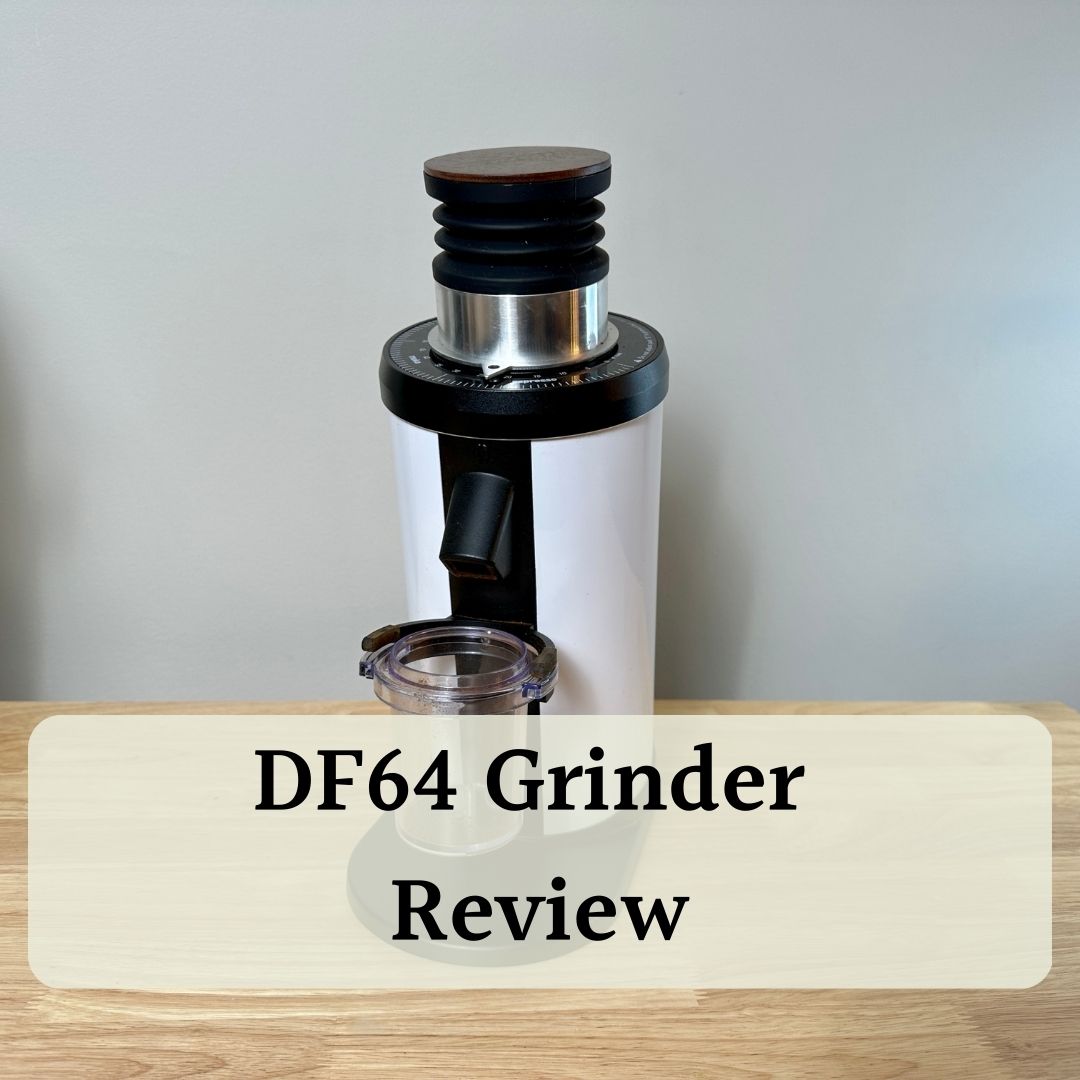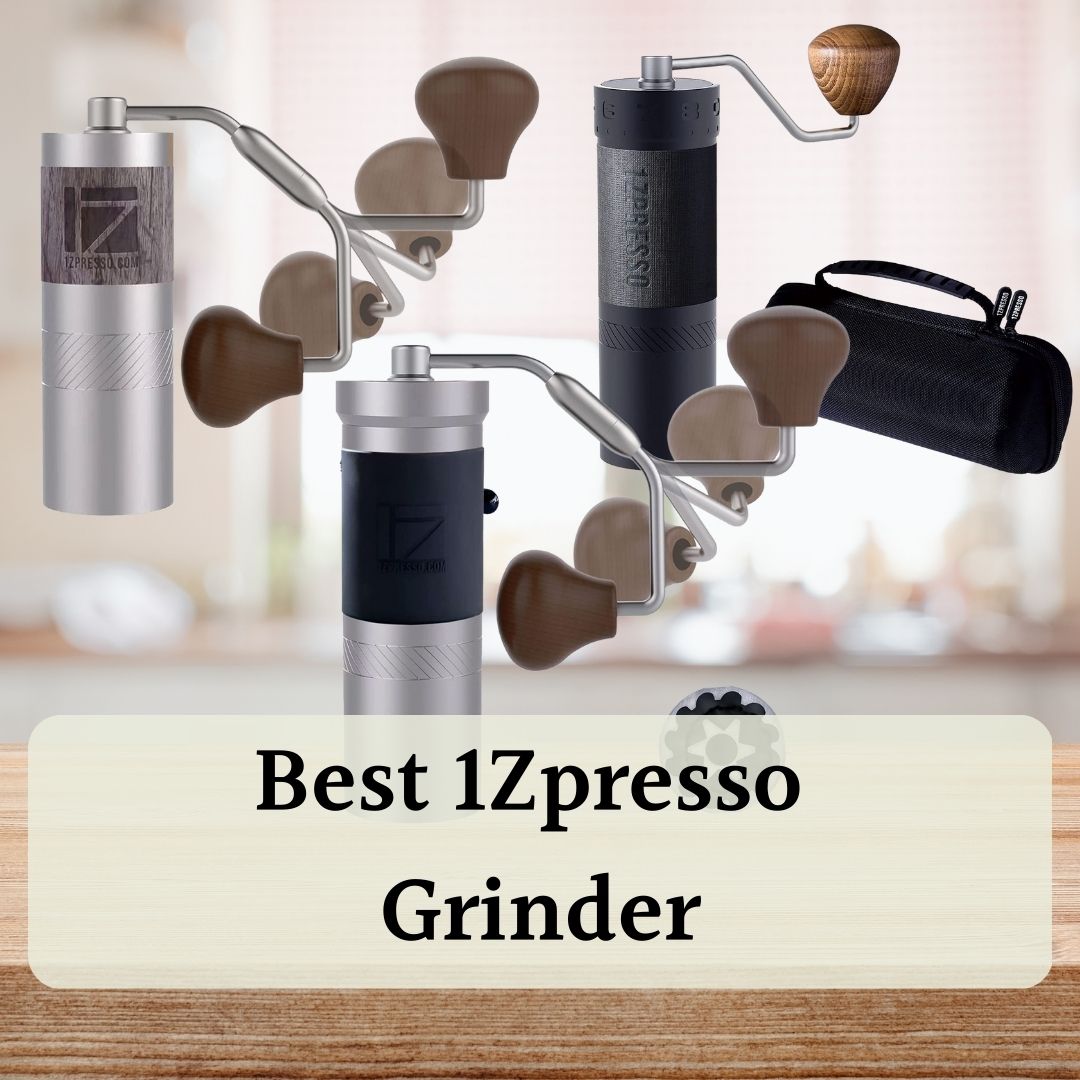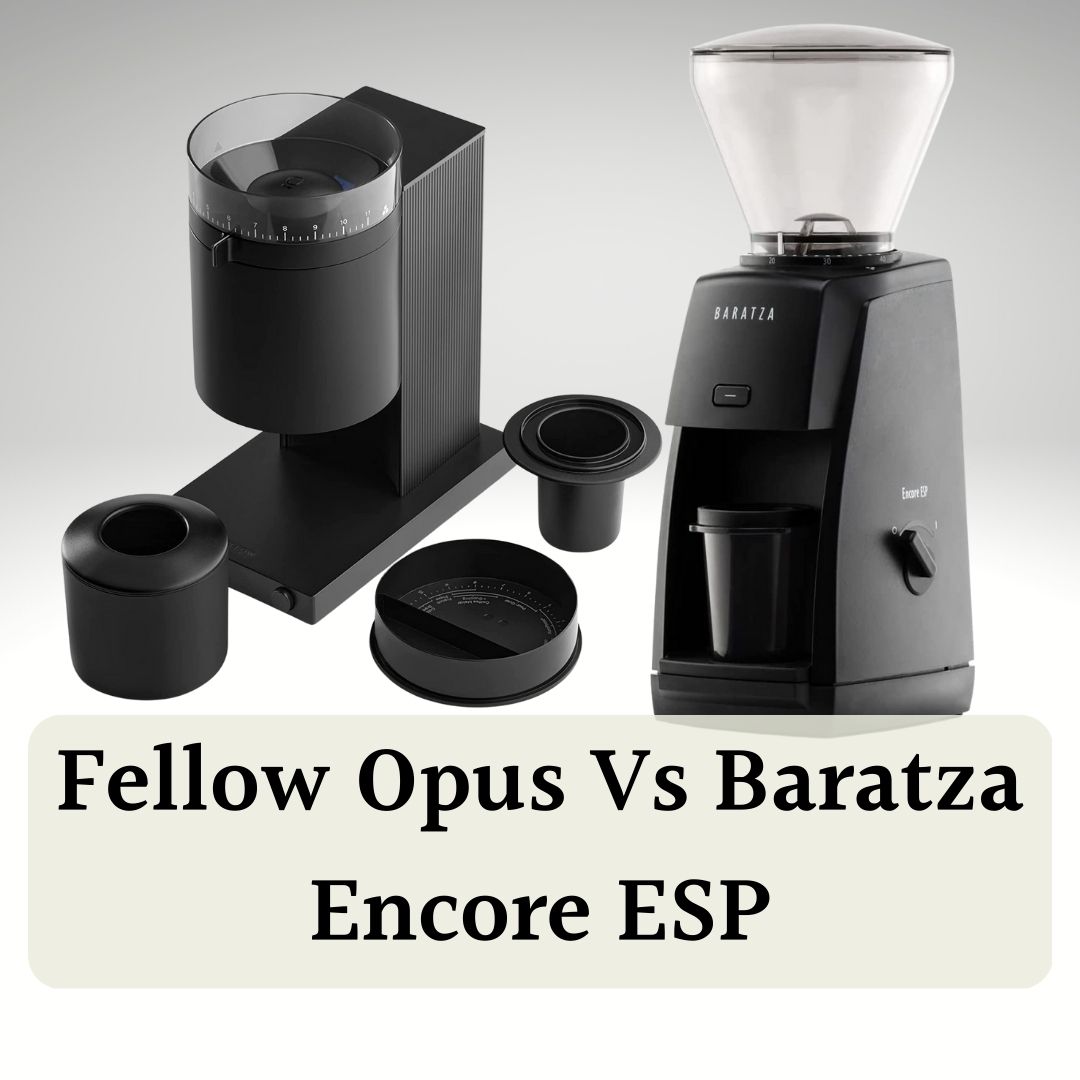There are two broad categories of coffee grinders: electric and manual (also called hand grinders). When choosing a coffee grinder, the first decision you have to make is which of these two types of grinders to choose.
Manual grinders are great options for portability and affordability. They are small, light, and inexpensive, which makes them easy to take with.
Electric coffee grinders are best for a permanent home setup that makes use of a variety of brew methods. They are great for more “routine” brewing as it’s easier to use. Personally, I use both: an electric for daily use and a manual grinder for travel.
Here, we’ll take a look at what separates these two types of grinders and how they work best according to different grinding needs.
Manual Coffee Grinders: Overview
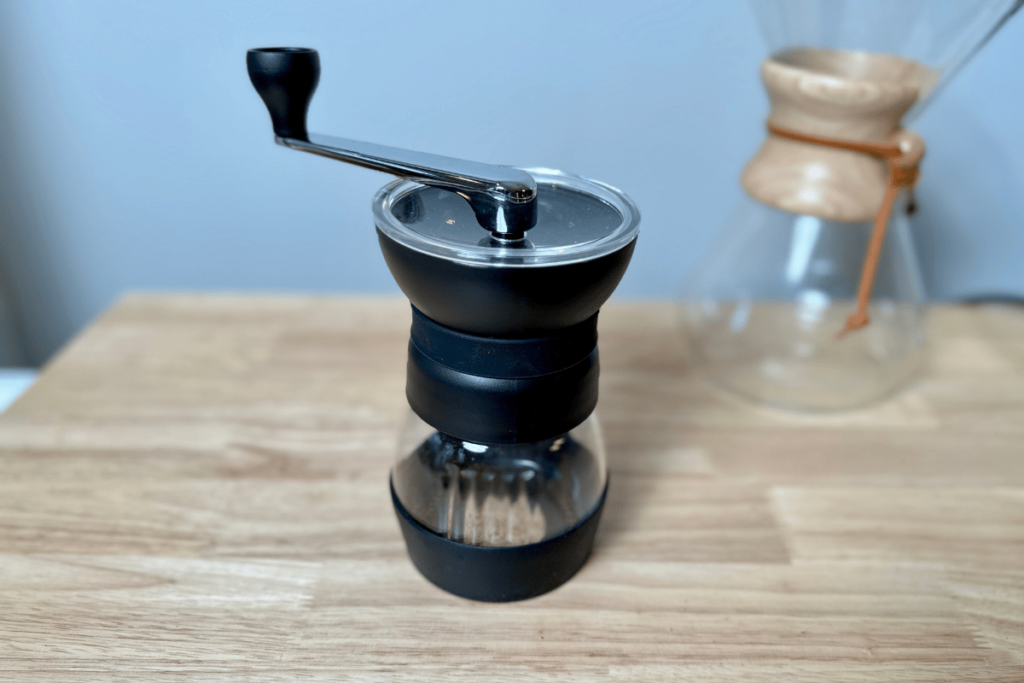
A manual coffee grinder requires you to turn a crank to grind coffee beans by hand. The basic function of these grinders is identical to their electric counterparts, but the “motor” that spins the burrs is your arm – no cords or outlets required. In short, a manual grinder is…manual.
Like all grinders, manual grinders have their strengths and drawbacks.
Pros
Compact Size
Quiet grinding
Cons
Difficult to adjust
Limited options
Let’s look at these in some more detail.
Size
The small size of most manual grinders makes them easy to store and transport. You can throw them in a kitchen cabinet, a backpack, or a travel coffee kit without taking up much room.
A manual grinder is an ideal tool if you have limited space for a coffee setup or want to bring your coffee gear on the road. I take my Timemore C3 on weekend getaways. It fits easily in my backpack along with my AeroPress. If I can get hot water, it’s easy to make any type of coffee I like.
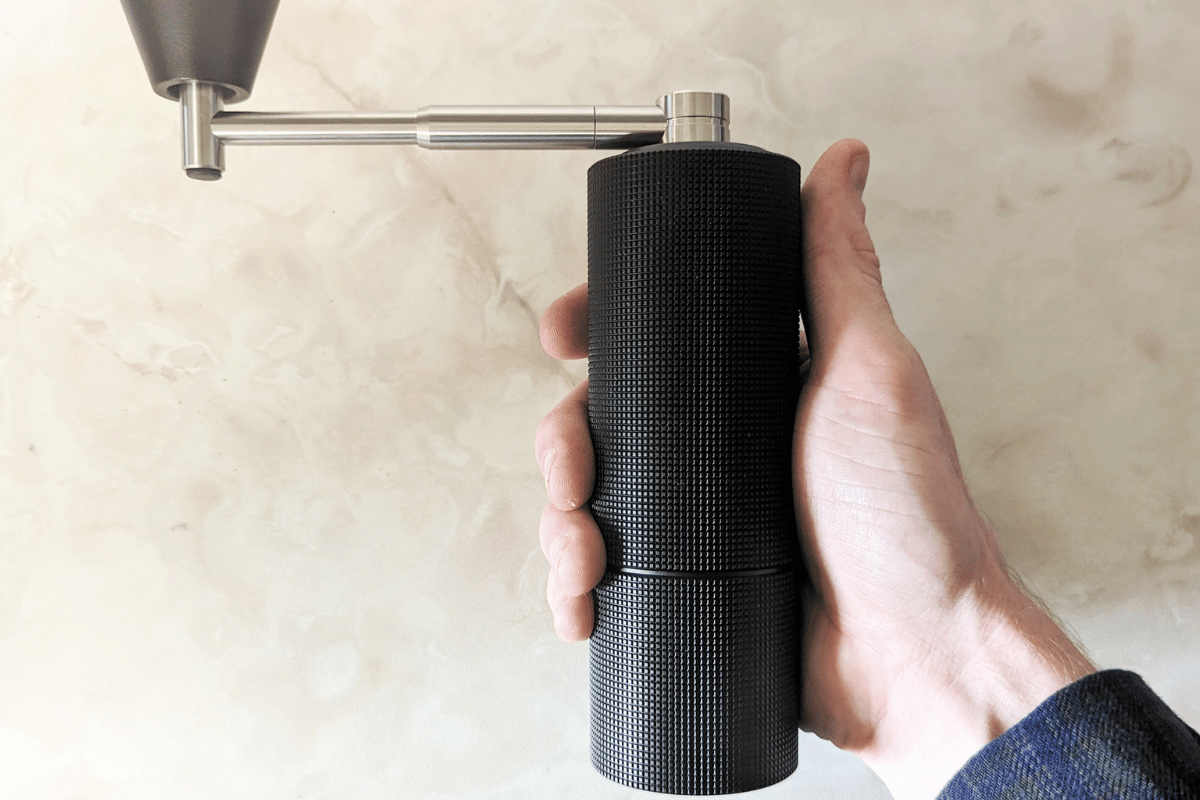
I think you can pair a manual coffee grinder with just about any type of coffee maker to use on the go.
Quiet Grinding
Preparing freshly ground coffee with a manual coffee grinder is an almost silent experience compared to an electric grinder. There’s no loud motor; the only noise is the sound of fresh coffee beans breaking apart as they fall through the burrs.
A hand grinder will let you wake up the rest of the house with the smell of fresh-brewed coffee, not the sound of you making it.
Adjustment Difficulty
Manual grinders have a big weakness: adjusting the grind size is difficult. Most manual grinders have a small dial on the bottom of the burr, which you turn to push the burrs closer (for finer grinds) or further apart (for coarser grinds). It’s a lot different than an electric grinder, which has a clearly labeled outer dial.
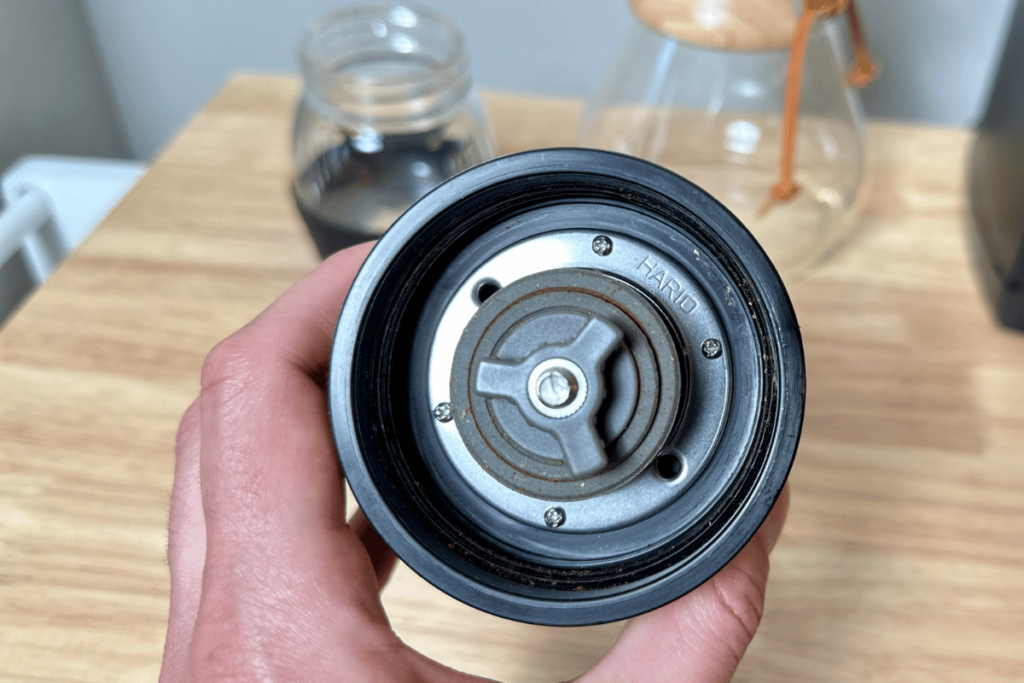
The grind dial is usually easy to access on manual grinders. However, it’s hard to know the grind setting. The dial is rarely labeled, so you have to remember the setting. Most dials can rotate multiple times, which makes it even harder to remember what rotation you’re on.
The only surefire way to know the grind size is to grind a little coffee and visually check the grind size. If you only make a French press with the same beans, this isn’t a problem. However, if you’re like me and regularly switch between brew methods, these adjustments can get very annoying very quickly.
To be clear, grind adjust isn’t always difficult. I’ve also tried the grinders from 1zpresso, which puts a lot of thought into design. Some of their higher-end models, like the 1zpresso J Max, have an easily labeled exterior grind adjustment.
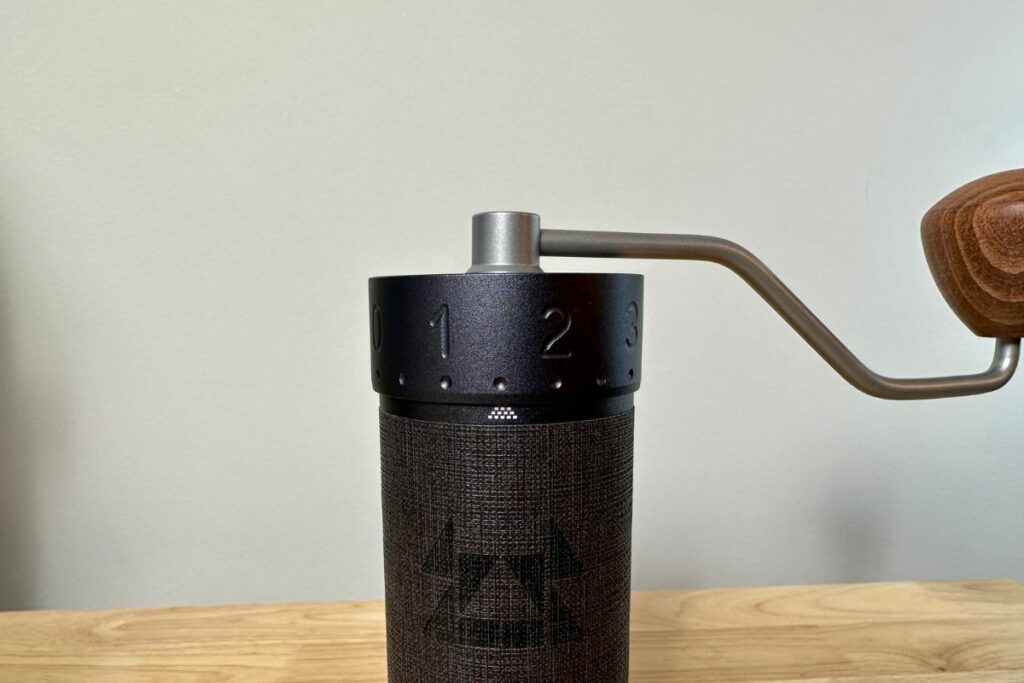
Limited Burr Options
Without a motor, hand grinders only have one way of getting the job done: conical burrs. We’ve discussed the upsides and downsides to conical burrs or flat burrs. The short answer is “it depends,” but flat burrs are usually more consistent and found on high-end grinders for that reason.
However, if you’re using a manual grinder, you only have one option. If you want more flexibility in how your coffee is ground, a manual grinder may not provide the choices you want.
Electric Coffee Grinders: Overview
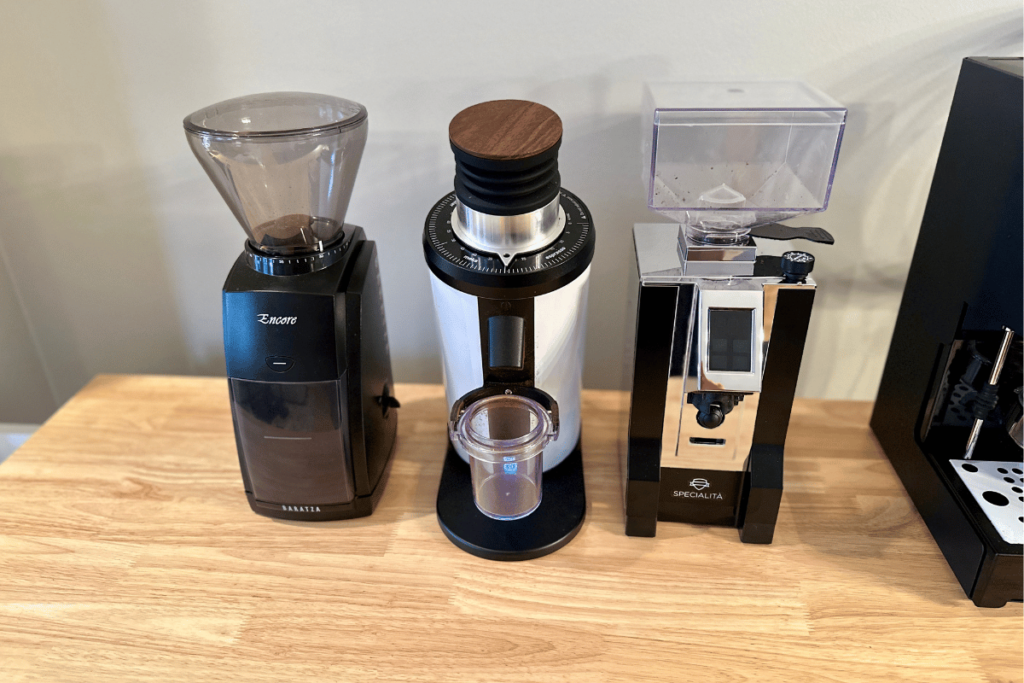
An electric coffee grinder has a motor that does the hard work of grinding coffee beans for you. This is often quicker and easier than a hand crank.
There are some positives and negatives worth noting about electric grinders.
Pros
Versatile
Abundance of options
Cons
Expensive
Larger size
Let’s unpack each of these.
Versatile
Many electric grinders come with a wide range of grind sizes. They can quickly adjust from a coarse French press to a fine grind for espresso without much effort. A decent electric coffee grinder will still allow you to make a morning V60 and an afternoon cappuccino.
Abundance of Options
Electric, automatic coffee grinders are by far the most popular, so there’s no shortage of choices in finding the right one for your setup. You can easily find an electric grinder, including options with more grind settings, grind specialization, or burr type. You can find an option that fits almost any preference.
The diversity of options is even more true at the high end. In particular, you can find some very sophisticated flat burr grinders that are excellent for espresso.
Cost
Electric grinders are usually more expensive due to accessibility and versatility. Even the simplest functional grinder can be over $60, and you’re more like to spend several hundred dollars.
There are budget-friendly options, but striking a balance between quality and cost will likely cost over $100. I believe it’s worth investing in a more expensive option. A good electric burr grinder consistently brings out nuanced flavor notes across brewing devices.
Size
Electric burr grinders will take up more room on your kitchen counter. The motor and cable take up more space than the simple hand crank of a manual.
It’s not easy to pack away and pull out each time you want to use it, so it’s best to have dedicated counter space. This also makes an electric grinder difficult to travel with (hence, I have a manual grinder for trips).
Head-to-Head Comparison of Electric vs Manual Coffee Grinders
So, how do manual and electric grinders compare, and what are some important factors that can help you decide on what grinder is best for you? The three most important considerations to keep in mind:
- Cost: manual grinders are less expensive
- Quality: depends, but there most high-end grinders are electric
- Portability: manual grinders are easier to transport
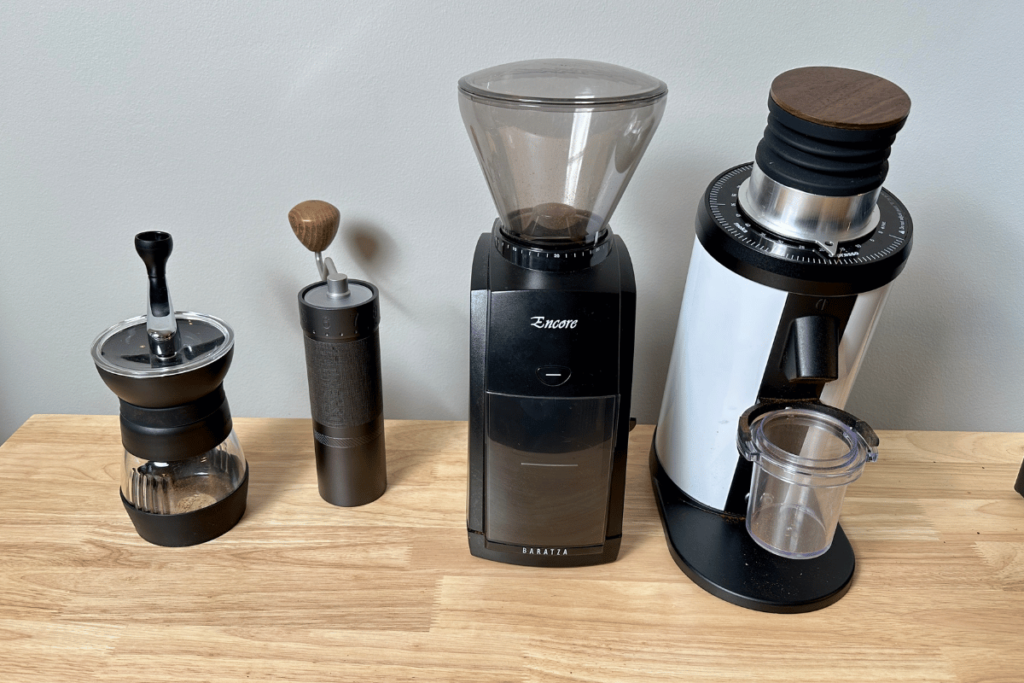
Cost
The gap in affordability between electric and manual grinders can be large. A high-end electric grinder can easily cost several hundred dollars. Its manual counterpart, however, tops out at around $200.
The higher price often comes with more features. An electric grinder is easier to use and provides more flexibility in choosing your desired features. Meanwhile, a manual grinder is harder to adjust.
For base functionality, a manual grinder will almost always be a more cost-effective option. The choice between the two is a matter of how much you want to spend on a simpler experience and more robust options.
Quality
No matter what grinder you use, it should deliver a consistent grind and be made to last. When it comes to consistent quality, electric coffee grinders have a slight advantage over manual coffee grinders for one reason: burr types. As I mentioned above, manual coffee grinders are limited to only using conical burrs. This isn’t an inherently bad thing, but conical burrs do tend to create a slightly less consistent grind size than flat burrs.
The motor in an automatic grinder makes flat burrs possible, which more consistently produces uniform-sized grounds. There are electric grinders with conical burrs, too, so score another point for electric grinders’ flexibility.
There are also electric blade grinders, but we always recommend using a burr grinder.
That said, manual coffee grinders have the edge in build quality. The components of a manual coffee grinder are often made of metal. There are a few popular options with a glass or plastic grind chamber, but most high-end manual grinders are built with metal casing.
Even the most expensive electric coffee grinder will likely have a plastic casing, buttons, and knobs. Overall, manual grinders will generally be more sturdy against bumps and drops than electric grinders.
Portability
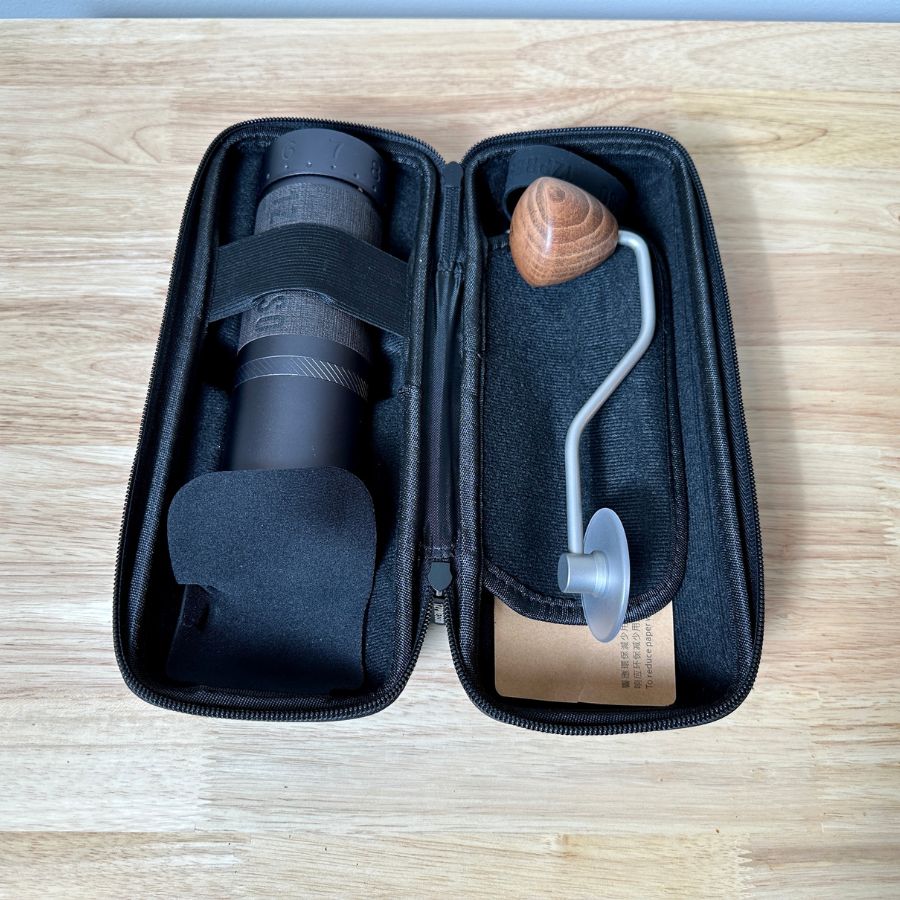
Manual grinders are far and away more portable than electric grinders. I love to take my coffee setup with me whenever I travel, including on outdoor trips where I don’t have access to electricity. So, while I use an electric coffee grinder at home, if I was forced to choose only a manual or electric grinder, I’d choose a manual every time.
Which Grinder Is Best?
Neither type of grinder is inherently better than the other. The “best” coffee grinder is the one that works with your individual setup. Ask yourself how much you value portability, versatility, and cost before making a decision.
For more coffee grinder recommendations, learn about flat vs conical burrs and why we like burr grinders.

